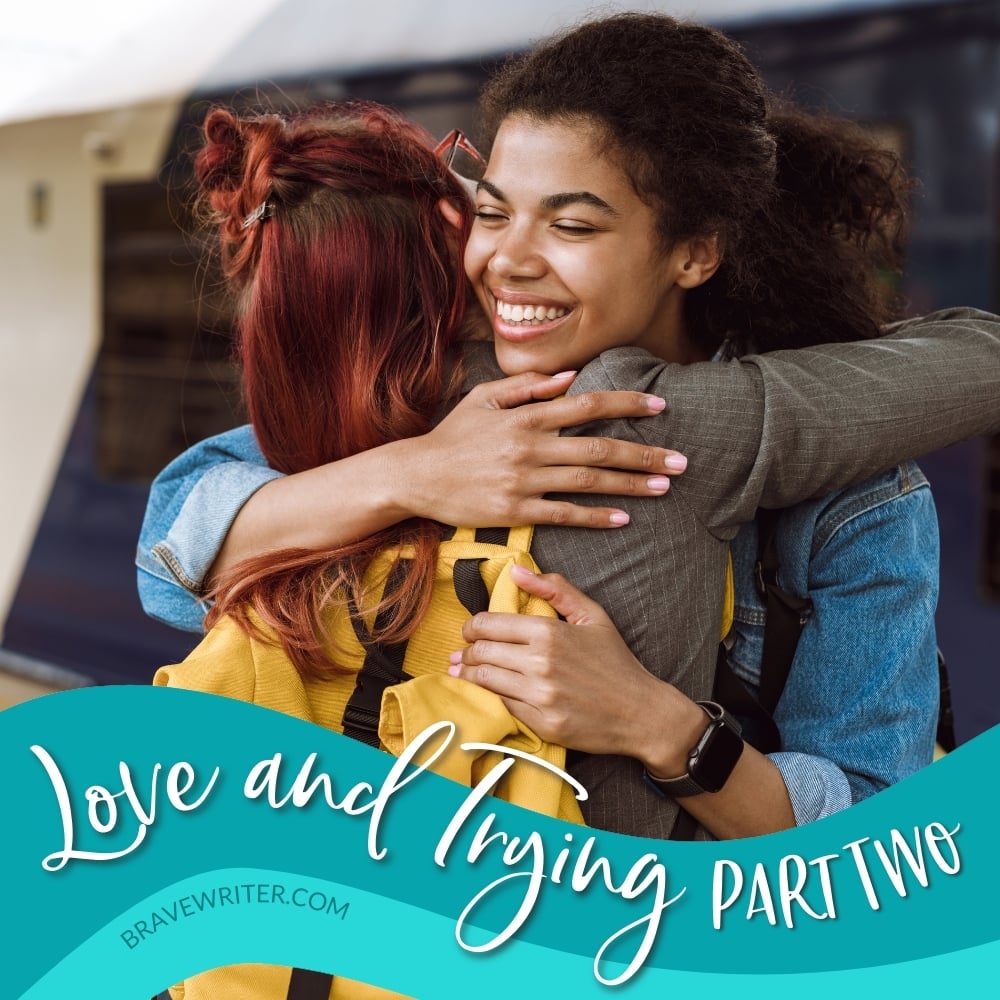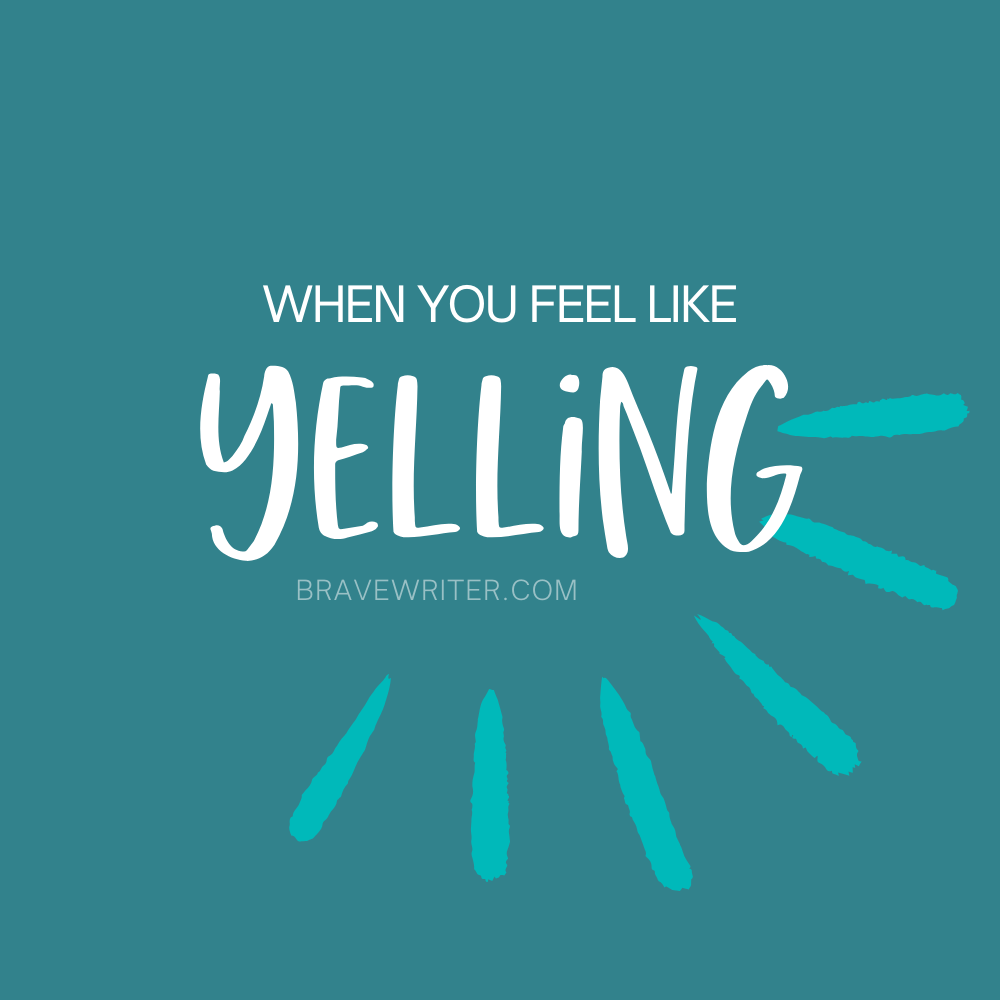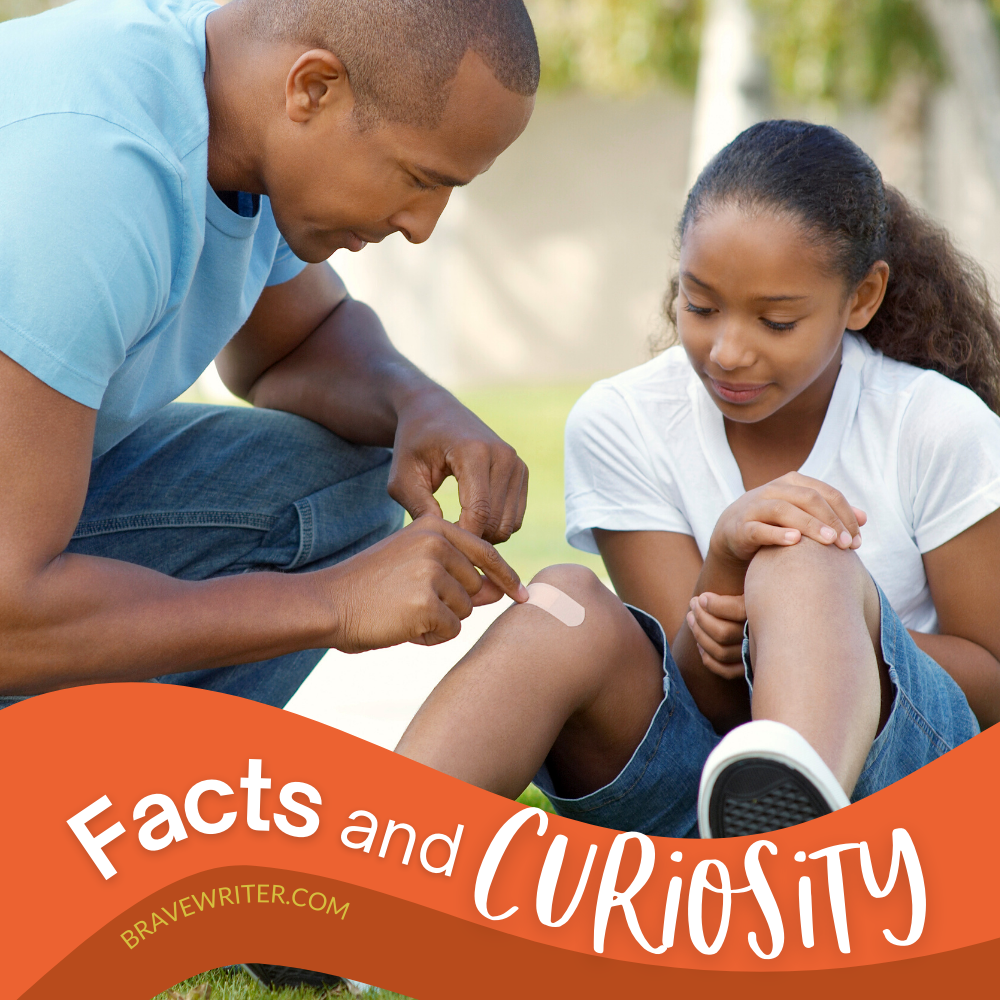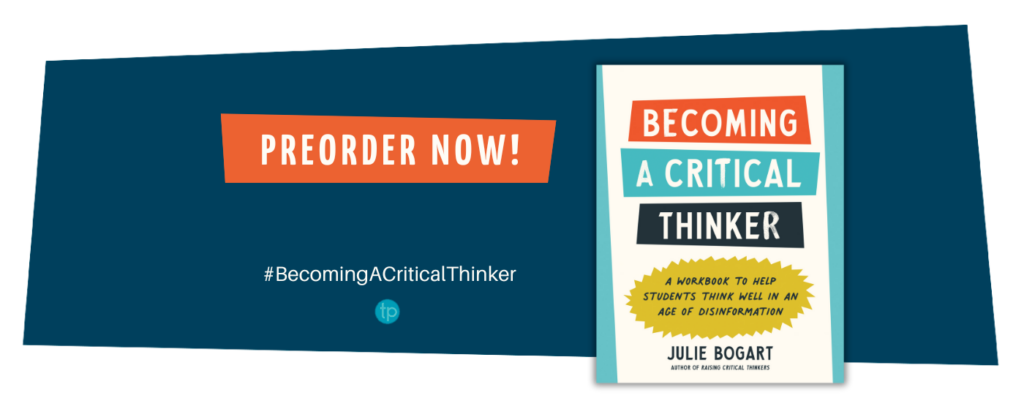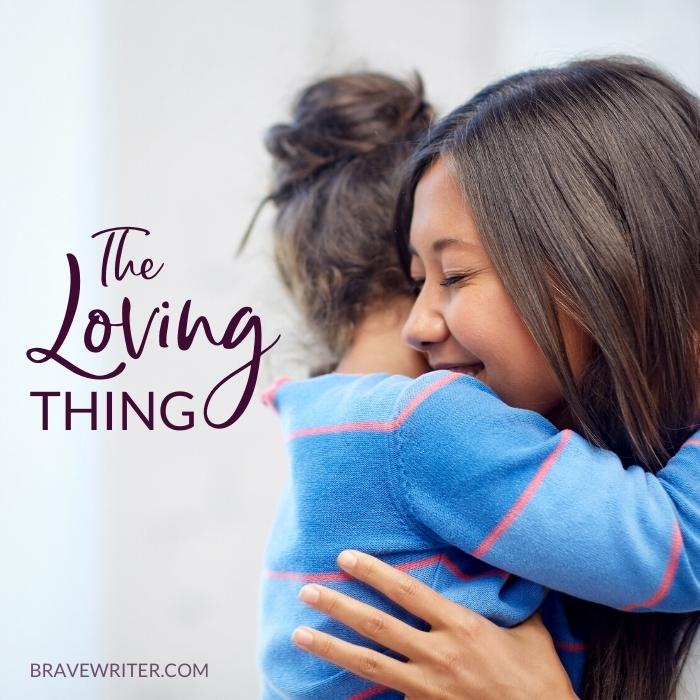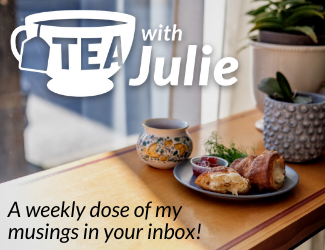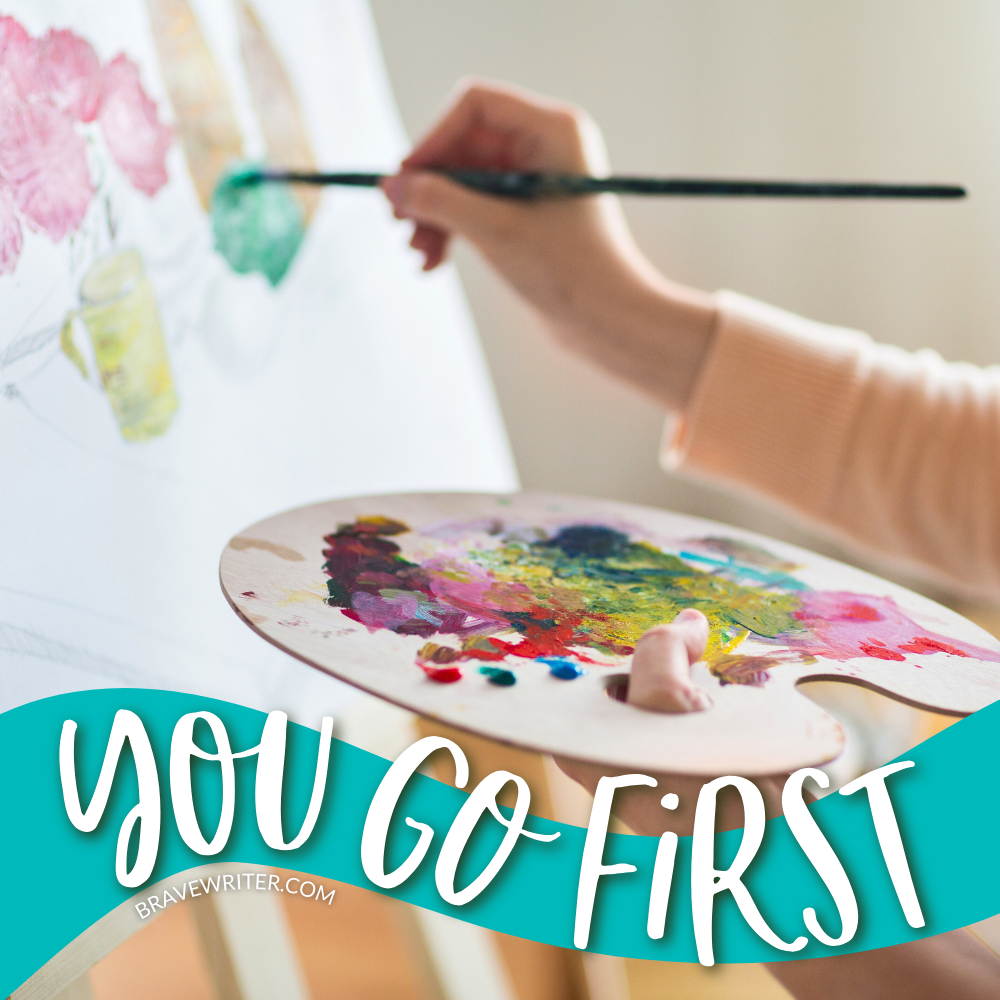
Give your kids something to brag about!
Let’s break a rule. You get to go first.
Put what YOU want to do first tomorrow. Just for a day. Just do your One Thing that makes you a little bit excited.
What Is That Thing?
Can you do it right in front of your kids, smack dab in the middle of the day?
Can you say something like:
“I’m making a candle from scratch today. I was reading about it online and I got so interested, I decided to do it. You can play or do whatever you want, but I’ll be over here candle-making.”
Could you say:
“Hey, excuse me while I grab a cup of tea and read this chapter in my book. I have to know what happens next.”
Or maybe say nothing.
What if you turned on the TV, hooked up YouTube, and did yoga right in the middle of the children’s play space, with toys on every side?
Perhaps you make sure you get your run in as you train for that half marathon.
Maybe you start the day with your own copywork—recording your favorite passages from a book or copying French into a notebook as you study it.
Showing Up
For our kids, we talk so much about:
- catalyzing curiosity,
- creating a hunger to learn,
- and encouraging dedication to follow through.
But how are WE living those very values? Not just as a model but as the very life force of our days? How are we showing up and living the beliefs and values we say we have?
Dream, act on a tiny portion of that dream, do it in front of your children (not off stage after they’re in bed).
See what happens!


